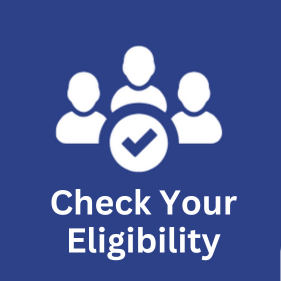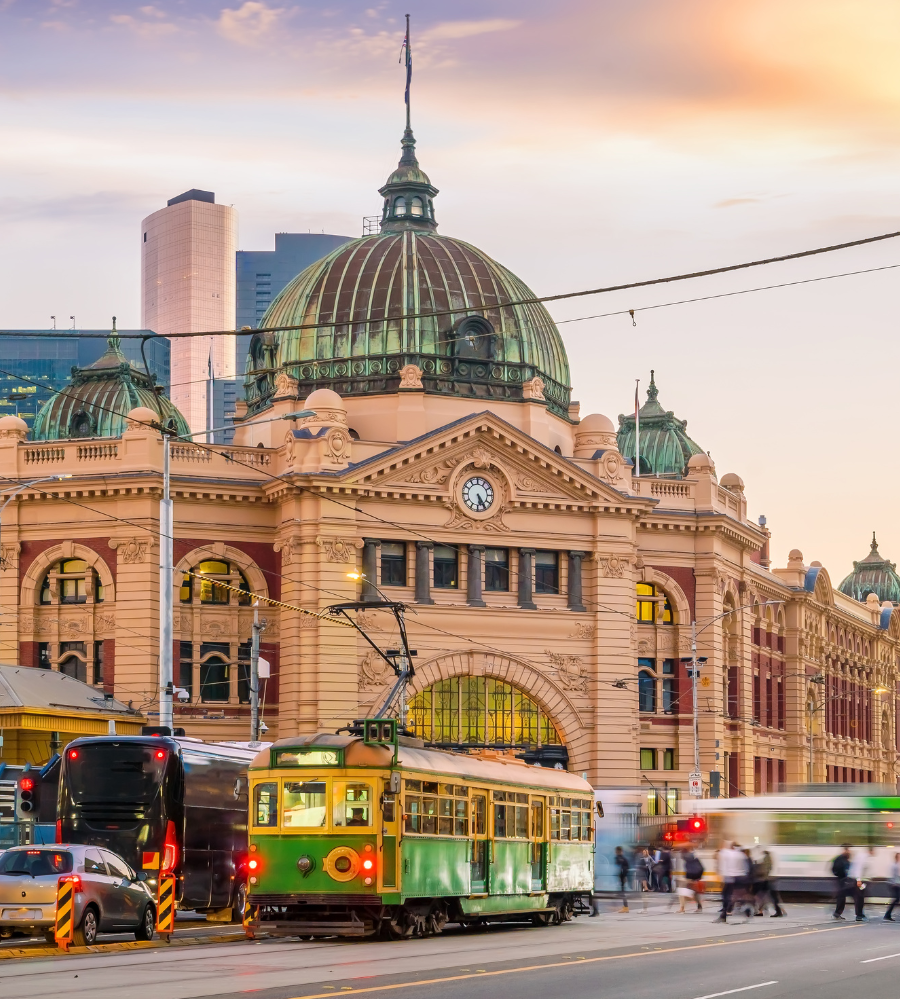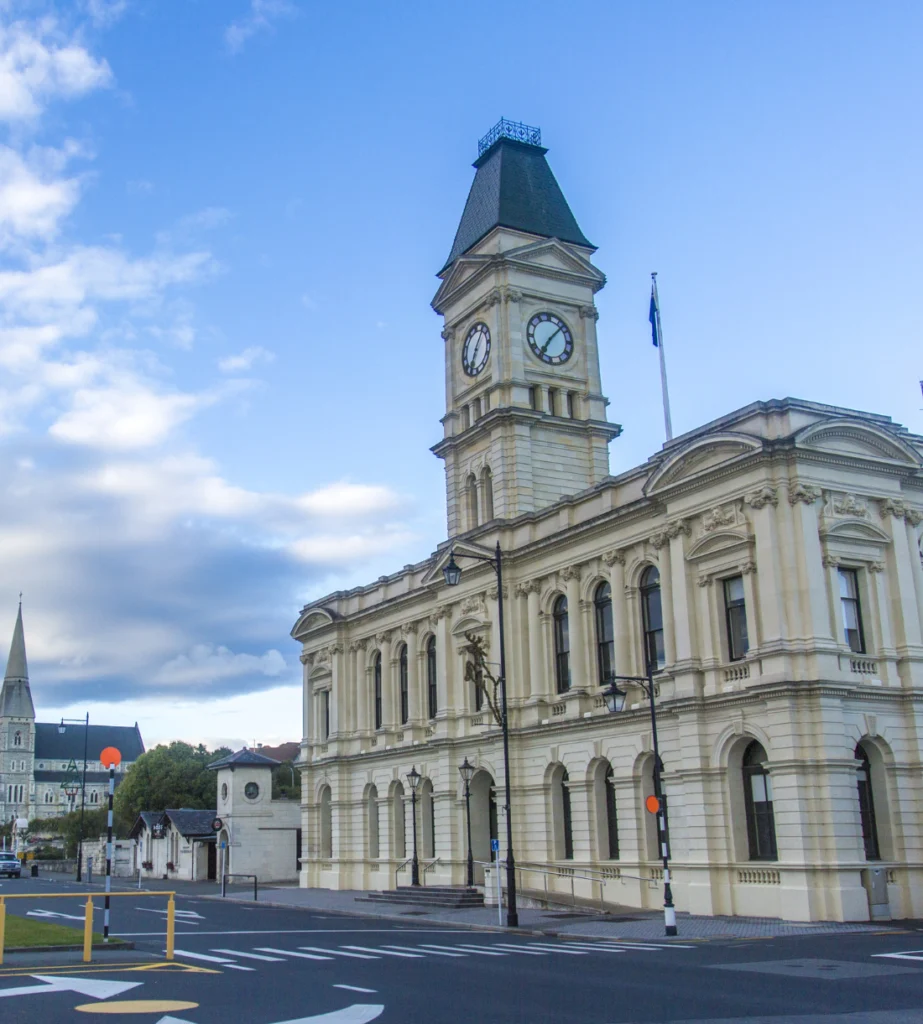STUDY IN AUSTRALIA
Counted among the Top 3study-abroad destinations, Australia attracts more than 500,000 students every year after the USA and the UK. Offering more than 22,000 courses across 1,100 institutions, Australia invests 200,000,000 AUD in scholarships each year. The United Nations ranked the country as the second most attractive Study destination.

WHY STUDY IN AUSTRALIA?
Experiencing a cutting-edge education that makes you ready for a world of opportunities is what you take away from the leading institutions in Australia. Let us find out why Australia is the new popular study-abroad destination among international students:
High-quality education: Australian universities are consistently ranked among the best in the world. In the 2023 QS World University Rankings, 8 Australian universities are ranked in the top 100, including the University of Melbourne (ranked 31st), the University of Sydney (ranked 40th), and the Australian National University (ranked 47th).
Globally recognized degrees: Australian degrees are recognized and respected by employers all over the world. This means that you will have a good chance of finding a job after you graduate, regardless of where you want to work.
International student-friendly environment: Australia is a very welcoming country for international students. There are many support services available to help you adjust to life in Australia, including English language classes, student support centers, and cultural exchange programs.
Work opportunities: As an international student in Australia, you are allowed to work up to 20 hours per week during your studies and full-time during your breaks. This is a great way to gain work experience and make some money while you are studying.
Post-study work visa: After you graduate from an Australian university, you are eligible to apply for a post-study work visa. This visa allows you to stay in Australia and work for up to 18 months. This is a great way to gain further work experience and make the transition to a permanent visa.
- 79% of graduates have full-time employment.
- 6% of students enrolled for further studies.
- 4% of the total students are self-employed.
Quality of life: Australia is a highly developed country with a high standard of living. You will find that Australia is a safe, clean, and friendly country with plenty of opportunities for outdoor activities.
If you are considering studying abroad, Australia is a great option. With its high-quality education, globally recognized degrees, international student-friendly environment, work opportunities, and post-study work visa, Australia is a great place to study and build your future.

WHAT TO STUDY IN AUSTRALIA?
Some of the popular streams amongst international students who chose to study in Australia are:
- Business, Management, and Commerce
- Information Technology
- Health
- Engineering
- Society and Culture
- Natural and Physical Sciences.
INTERESTED TO STUDY?
LET'S TALK TO OUR EXPERT COUNSELLORS

POPULAR PROGRAMS TO STUDY IN AUSTRALIA:
BBA in Australia | B.tech In Australia | Bachelor of Mechanical Engineering | Bachelor of Business | Bachelor of Architecture | LLM in Australia |
MBA in Australia | MS in Australia | Master’s in Business Analytics | Masters in Project Management | Masters in Civil Engineering | Masters in Data Science |
STUDY IN AUSTRALIA: TIMELINE OF ADMISSION CYCLE:
Month | Timeline |
May- June (previous year) | Research your options |
June | Register for standardized test and take the test |
July | Prepare the application package and get your test scores. |
August- September | Start applying |
October- November | Applications close |
December-January | Colleges start replying to applications |
December | Prepare your finances, explore scholarships, and apply for education loans. |
December-January | Apply for the student’s Visa |
February | Departure preparations |
February – March | Session starts |
ADMISSION REQUIREMENTS:
VET (Vocational Education & Training): In most cases, there are no prerequisites. Some courses require students to have previously studied specific subjects or completed work experience. English language requirement has to be met according to the program-specific requirements.
Here are the specific requirements and qualifications for some of the most popular courses in Australia:
Bachelor’s degree: The minimum academic requirement for a bachelor’s degree in Australia is completion of secondary education with a minimum of 65%. The English language proficiency requirement is an IELTS score of 6.0 in each band or equivalent. A level with English language minimum C Grade / IELTS scores 6 / TOEFL scores 67 or equivalent, for Foundation and diploma program IELTS score 5.5 / TOEFL score 55 / equivalent.
Master’s degree: The minimum academic requirement for a master’s degree in Australia is a bachelor’s degree with a minimum GPA of 3.0. The English language proficiency requirement is an IELTS score of 6.5 or equivalent. TOEFL score 79. Students will IELTS 5.5 and low CGPA can apply for the Pre-masters program.
Doctorate degree: The minimum academic requirement for a doctorate degree in Australia is a master’s degree with a minimum GPA of 3.5. The English language proficiency requirement is an IELTS score of 7.0 or equivalent
DOCUMENTS REQUIRED FOR AUSTRALIAN STUDENT VISA:
International applicants must submit the following documents:
- Proof of identity/Passport
- Evidence of OSHC
- Documents for dependents and children, if applicable.
- Completed Australian student visa application form (157A).
- Electronic Confirmation of Enrolment (eCoE).
- Filled up Genuine Temporary Entrant (GTE) form & SOP.
- Fees: Visa application fee – 620 AUD & Biometric fee – 2450 BDT (Fees are subject to change)
- Bank statements, evidence of grants, or scholarships. Overseas Student Health Cover (OSHC)
- Proof of English Proficiency
- Police clearance
- Four recent passport-sized photographs
- Proof of Work Experience
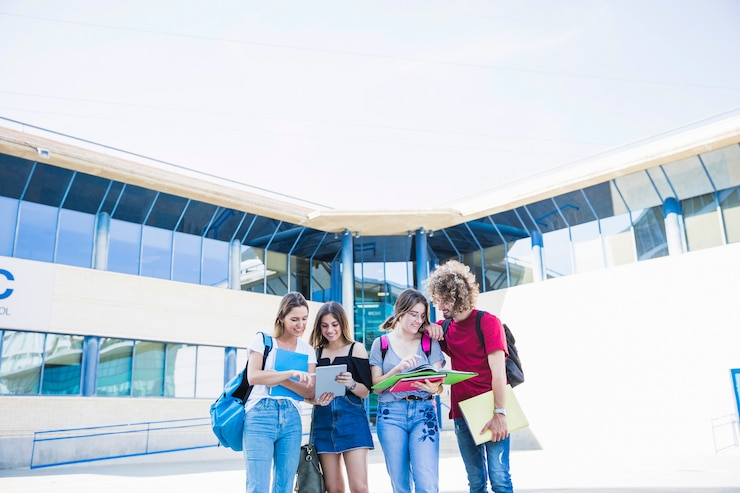
COST OF STUDYING IN AUSTRALIA (APPROXIMATE):
The tuition fees for pursuing a specific degree will vary as per institution, level of study, and choice of program. Given below is a table briefing the tuition fees for studying in Australia:
Sector/Program | Yearly Fees in BDT |
School | 5.27-18.45 lakhs |
ELICOS | 18,453/per week (yearly fees depends on duration of program) |
VET | 2.89 to 14.06 lakhs |
Undergraduate Programs | 11.96 to 30 lakhs |
Postgraduate Programs | 11.96 to 35 lakhs |
Doctoral Programs | 10.88 to 24.04 lakhs |
COST OF LIVING IN AUSTRALIA (APPROXIMATE):
The average living expenses in Australia are tabulated here.
Expense Type | Cost in BDT |
Rent | 360-1700/month |
Groceries Cost | 770 to 15,360/week |
Phone & Internet | 822-1,645/week |
Car (post-purchase) | 8,230 to 14,262/ week |
Gas & Electricity | 550 to 1,100 |
Entertainment | 4,400 to 8,230 |
Overall Additional Funds Required to Study in Australia | |
Singles (Student/Guardian) | 11.51 lakhs/year |
Partner Accompanying You | 4.03 lakhs/year |
Child Coming with You | 1.73 lakhs/ year |
SCHOLARSHIPS FOR INTERNATIONAL STUDENTS TO STUDY IN AUSTRALIA:
Financial assistance to study in Australia is available in the form of bursaries, scholarships, and grants offered to international students by the Australian government as well as universities. Some of the scholarships for international students in Australia are listed below:
Scholarship | Eligibility | Award | Application |
Australian Awards | Citizens from Asia, Pacific, Middle East and Africa | Full tuition fee, establishment allowance, OSHC, Return air travel, etc | Online Application Scholarships Information System |
Australian Government Research Training Program | Students pursuing Masters or Research Program in Australia | RTP tuition fee payment for Higher Degree Research Student, RTP Stipend to pay for living expenses, RTP Allowances to pay ancillary costs of HDR students | Apply through RTP website |
Endeavor PG Scholarship Awards | International students pursuing Masters or Ph.D. courses in Australia | Tuition fee, travel allowance, establishment allowance, monthly stipend, and health insurance | Apply through international education website of Australian Government |
Deakin International Scholarships | International students enrolled in coursework programs | 25% reduction in tuition | Additional application through Deakin University |
Melbourne Graduate Scholarship | Enroll for eligible masters program at University of Melbourne | 25-100% tuition waiver | Additional application through University of Melbourne |
JOBS AFTER STUDYING IN AUSTRALIA:
After completing your studies in Australia, you qualify as an attractive employee to employers across the world. For applicants who have completed their bachelor’s or master’s in Australia and are planning to stayand work in Australia, you will be eligible for an Australian work visa subclass 485. It is mandatory for international students to have a work visa before starting their careers in Australia. The average monthly salaries across Australia are around 7500 AUD.
Among some of the highest-paying job sectors in Australia are:Executive Management: 1.06 crore BDT.
- Legal Department: 87.6 lakhs BDT.
- Legal & Paralegal: 86.5 lakhs BDT
- Financial Services: 70.18 lakhs BDT
- IT & Software Development: 67.38 lakhs BDT.
HOW AGC CAN ASSIST YOU:
- We have expertise in matching students’ academic backgrounds, interests, and career aspirations with suitable courses and universities in Australia.
- Application Guidance: They assist students in preparing and submitting university applications, ensuring all necessary documents are properly compiled and deadlines are met.
- We provide insights into crafting strong application essays, CVs, and recommendation letters to enhance the chances of admission.
- We guide students through the student visa application process, ensuring all required documentation is complete and accurate.
- We offer guidance on English language proficiency tests (IELTS, TOEFL, etc.) preparation and registration.
- We help students find scholarships and grants that align with their qualifications and fields of study.
- We provide estimated budgets, helping students plan for tuition fees, living expenses, and other costs.
- We offer information on life in Australia, including cultural norms, local customs, and practical tips for settling into a new environment.
- We assist with flight bookings and airport transfers, ensuring a smooth transition to Australia.
- We help students find suitable accommodation options, whether it’s on-campus housing, shared apartments, or homestays.
- Health Insurance: Study abroad firms guide students in obtaining the necessary health insurance coverage required by Australian universities and the government.
- We offer support after students arrive in Australia, helping with tasks like enrollment, obtaining local SIM cards, and navigating the city.
- Academic Support: Study abroad firms may offer academic resources, including tutoring services or study groups, to help students excel in their courses.
- We can connect students with alumni networks, events, and communities, facilitating connections and friendships.
- We provide a safety net for students, helping in case of emergencies or unforeseen challenges.
- We provide guidance on adapting to Australian culture, etiquette, and ways of life, helping students feel comfortable and confident.
- Work Opportunities: Study abroad firms inform students about part-time job opportunities during studies and

SKILLED INDEPENDENT VISA (SUBCLASS 189)
This visa is for skilled workers who meet the Australian government’s requirements for permanent residency. You will need to have a certain level of education, work experience, and language proficiency. You will also need to pass a skills assessment to prove that you are qualified for a skilled occupation in Australia.
QUALIFICATIONS:
- You must have a bachelor’s degree or higher from an Australian university or an equivalent qualification from a non-Australian university that is recognized by the Australian government.
- You must have at least 2 years of full-time skilled work experience in the last 5 years in an occupation that is on the Skilled Occupations List (SOL).
- You must have a valid English language test score. The minimum score required depends on your age and education level.
DOCUMENTS:
- Passport
- Proof of identity
- Proof of education
- Proof of work experience
- English language test score
- Police clearance certificate
- Medical certificate
- Expression of Interest (EOI)
APPLICATION PROCESS:
- Create an Expression of Interest (EOI) on the SkillSelect website.
- Score at least 65 points in the SkillSelect points test.
- Be invited to apply for the visa.
- Submit your visa application.
- Provide supporting documents, such as your passport, education certificates, and work experience letters.
- Attend a visa interview, if required.
- Pay the visa application fee.
- Wait for your visa decision.

SKILLED NOMINATED VISA (SUBCLASS 190) IN AUSTRALIA
This visa is for skilled workers who have been nominated by an Australian state or territory government. The state or territory government will assess your skills and experience to see if you are a good fit for their economy.
QUALIFICATIONS:
- You must have a bachelor’s degree or higher from an Australian university or an equivalent qualification from a non-Australian university that is recognized by the Australian government.
- You must have at least 2 years of full-time skilled work experience in the last 5 years in an occupation that is on the Skilled Occupations List (SOL).
- You must have a valid English language test score. The minimum score required depends on your age and education level.
DOCUMENTS:
- Passport
- Proof of identity
- Proof of education
- Proof of work experience
- English language test score
- Police clearance certificate
- Medical certificate
- Expression of Interest (EOI)
- Nomination from an Australian state or territory government
The nomination from an Australian state or territory government is the most important requirement for the Skilled Nominated visa. Each state and territory has its own nomination criteria, so you will need to check with the relevant government to see if you are eligible.
APPLICATION PROCESS:
- Create an Expression of Interest (EOI) on the SkillSelect website.
- Score at least 65 points in the SkillSelect points test.
- Be invited to apply for the visa.
- Submit your visa application.
- Provide supporting documents, such as your passport, education certificates, and work experience letters.
- Attend a visa interview, if required.
- Pay the visa application fee.
- Wait for your visa decision.

TEMPORARY SKILL SHORTAGE VISA (SUBCLASS 457)
This visa is for skilled workers who are needed to fill temporary shortages in the Australian workforce. You will need to have a job offer from an Australian employer who is registered with the Department of Home Affairs.
QUALIFICATIONS:
- You must have a job offer from an Australian employer who is registered with the Department of Home Affairs.
- The job offer must be for an occupation that is on the Temporary Skill Shortage List (TSL).
- You must have a valid English language test score. The minimum score required depends on the occupation you are applying for.
DOCUMENTS:
- Passport
- Proof of identity
- Proof of education
- Proof of work experience
- English language test score
- Police clearance certificate
- Medical certificate
- Job offers letter from an Australian employer
- Medical certificate
- Expression of Interest (EOI)
- Nomination from an Australian state or territory government
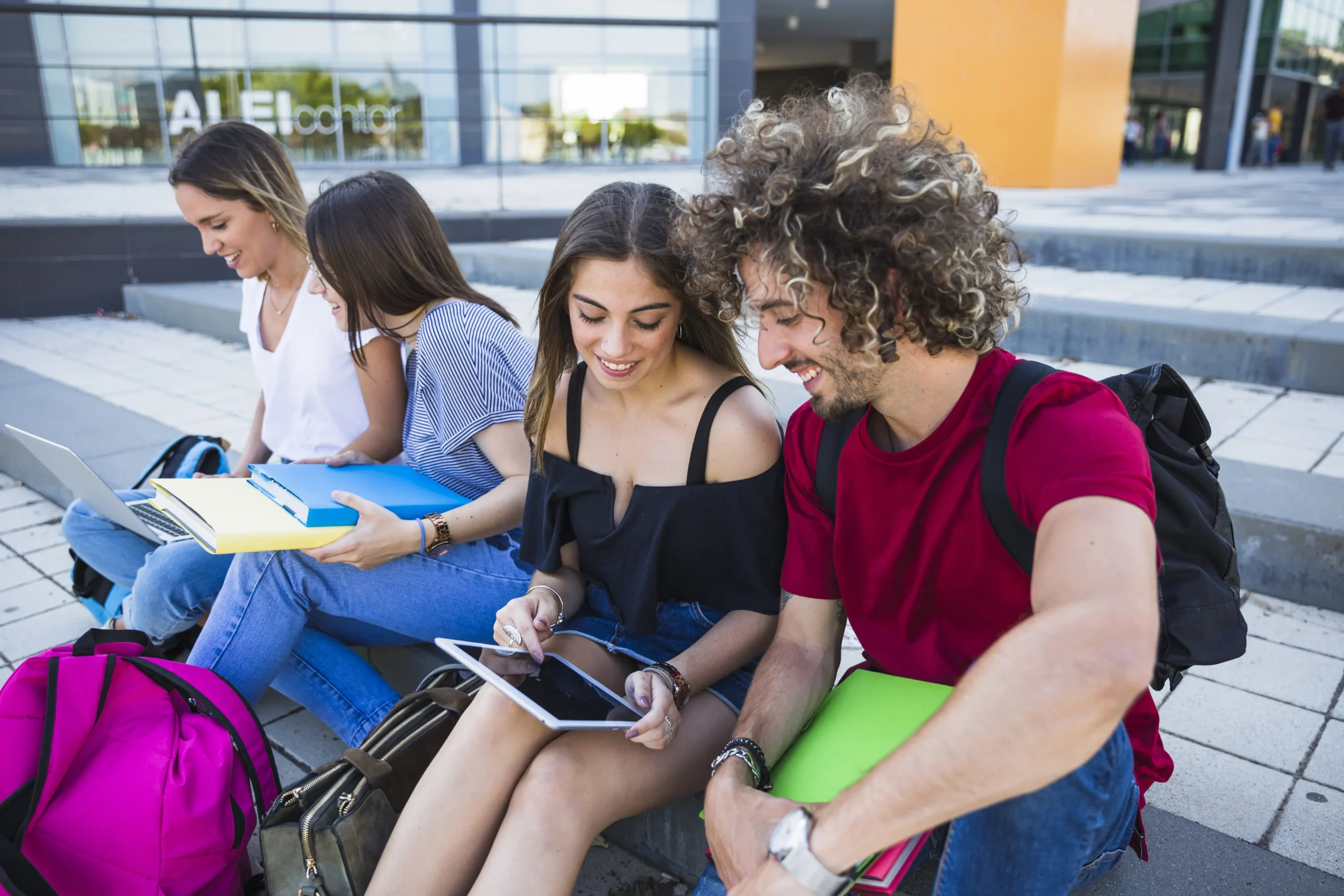
WORK AND HOLIDAY VISA (SUBCLASS 417):
The Work and Holiday Visa (Subclass 417) is a visa option that allows young people from eligible countries to work and travel in Australia for up to one year. This visa is designed to promote cultural exchange and closer ties between Australia and the participating countries. Here’s an overview of the qualification requirements, required documents, and application process for the Work and Holiday Visa (Subclass 417):
QUALIFICATION REQUIREMENTS:
To be eligible for the Work and Holiday Visa (Subclass 417), you generally need to meet the following criteria:
- Age: You must be between 18 and 30 years old at the time of application.
- Eligible Nationality: You must hold a passport from an eligible country. The list of eligible countries can change, so it’s important to check the official Australian government website for the most up-to-date information.
- Educational Requirement: You must have completed at least two years of post-secondary study (equivalent to a diploma or higher) at a recognized institution.
- English Proficiency: You need to demonstrate English language proficiency. This can be done by providing evidence of your English language test scores (e.g., IELTS, TOEFL, etc.).
- Health and Character: You must meet health and character requirements. This may involve undergoing health examinations and providing police clearance certificates.
- No Dependents: You cannot have any dependent children accompanying you to Australia.
REQUIRED DOCUMENTS:
The exact documents required for your Work and Holiday Visa application may vary based on your individual circumstances, but generally, you’ll need to provide the following:
- Valid Passport
- Proof of English Language Proficiency
- Proof of Educational Qualification
- Proof of Sufficient Funds: To support yourself during your stay in Australia.
- Health Insurance: Evidence of adequate health insurance coverage for the duration of your stay.
- Character Clearance: Police clearance certificates from all countries you’ve lived in for more than 12 months over the past 10 years.
- Recent Passport-Sized Photos
APPLICATION PROCESS:
The application process for the Work and Holiday Visa (Subclass 417) typically involves the following steps:
- Check Eligibility: Ensure you meet the age, nationality, educational, and other eligibility requirements.
- Gather Documents: Collect all required documents, including proof of funds, health insurance, educational qualification, etc.
- Create an ImmiAccount: Create an account on the Australian immigration department’s online portal called ImmiAccount.
- Complete Online Application: Fill out the visa application form, upload the required documents, and pay the application fee.
- Health Examinations and Character Checks: If required, undergo health examinations and obtain police clearance certificates.
- Wait for Decision: The processing time for the visa can vary, so be patient. You can track your application’s progress through your ImmiAccount.
- Visa Grant: If your application is successful, you’ll receive a visa grant letter with details of your visa conditions.
- Plan Your Travel: Once your visa is granted, you can plan your travel to Australia. Make sure to abide by the visa conditions and make the most of your work and holiday experience!
It’s crucial to refer to the official Australian government website or consult with an experienced migration agent like Alex Global Consultancy for the most accurate and up-to-date information before applying.

DEPENDENT VISA
Australia offers Dependent Visas for family members of international students who are studying in Australia.
REQUIREMENTS:
- You must be the spouse, de facto partner, or child of an Australian student visa holder.
- You must be admissible to Australia.
- You must meet the financial requirements for dependent visas.
- You must be enrolled in a full-time course of study at an Australian educational institution.
DOCUMENTS:
- Passport
- Proof of identity
- Proof of relationship to the student visa holder
- Proof of financial support from the student visa holder
- Police clearance certificate
- Medical certificate
- Confirmation of enrollment from the educational institution
PROCESS:
- The student visa holder must create an Expression of Interest (EOI) on the SkillSelect website.
- The student visa holder must be invited to apply for the visa.
- The dependent visa applicant must submit their visa application.
- The dependent visa applicant must provide supporting documents, such as their passport, relationship evidence, financial support documents, and confirmation of enrollment.
- The dependent visa applicant may need to attend a visa interview.
- The visa application will be processed and a decision will be made.
FAQ (FREQUENTLY ASKED QUESTIONS)
It usually takes anywhere around 17-32 days for processing a student visa for applicants of higher education in Australia. This is usually the minimum time that a visa process can take, however, it can go up to 3 months for your student visa to be processed. Applicants are hence, suggested to apply at least three months before their classes begin in Australia.
Create a login for ImmiAccount with the Ministry of Home Affairs Australia. You can also choose to apply via agents or third-party counselors available to help students.
The application fee for applying for the student visa is 620 AUD (around 35,000 BDT)
Australia offers high-quality education, a diverse and welcoming culture, a range of courses and programs, and excellent research opportunities. It’s also known for its beautiful landscapes and quality of life.
You can apply directly to Australian universities through their official websites or use the centralized application system called the “Commonwealth Register of Institutions and Courses for Overseas Students” (CRICOS). Be sure to check the specific requirements for your chosen course and institution.
Most universities require proof of English language proficiency through tests like IELTS, TOEFL, or PTE. Requirements vary, but IELTS scores of 6.0-7.0 (overall) are common for undergraduate programs, and 6.5-7.5 (overall) for postgraduate programs.
Tuition fees vary depending on the university, course, and level of study. On average, international students can expect to pay between AUD 20,000 to AUD 45,000 per year for undergraduate programs, and AUD 22,000 to AUD 50,000 for postgraduate programs.
Yes, international students on a student visa (subclass 500) are usually allowed to work up to 40 hours per fortnight during the academic year and full-time during semester breaks.
Yes, many Australian universities offer scholarships to international students based on academic merit, leadership qualities, and other criteria. You can find scholarship information on university websites and through external scholarship programs.
You will need to apply for a student visa (subclass 500). Requirements include an electronic Confirmation of Enrolment (eCoE) from your chosen institution, sufficient funds for tuition and living expenses, health insurance, and English proficiency proof.
The Australian education system consists of primary, secondary, and tertiary education. Tertiary education includes vocational education and training (VET) institutions and universities offering higher education degrees.
Some of the popular study destinations in Australia include Sydney, Melbourne, Brisbane, Perth, and Adelaide. Each city offers unique cultural experiences and a variety of institutions.
Australia is known for its vibrant and multicultural student life. Universities organize various events, clubs, and activities. You’ll have the opportunity to meet students from all around the world and experience Australian culture.

